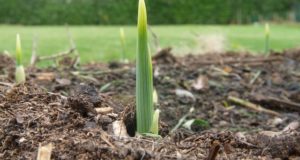The ability to grow your own food in the absence of commercial fertilizers or garden store cheats could someday make the difference between life and death. Acquiring that vital skill set is something that many wish to do, but few actually achieve it. There are dozens of reasons why not – costs, time, land availability – but with the arrival of the Worldwide Opportunities on Organic Farms program, reasons become mere excuses.
 Worldwide Opportunities on Organic Farms is better known as the “Willing Workers On Organic Farms” or WWOOF program. Pronounced like a dog barks, the program is designed to connect organic farms with volunteers. The loose international collaboration includes more than 99 countries across the globe where organic and sustainable farms are looking for help. In exchange for unskilled manual labor, they offer lodging, training, and the chance to walk away with skills that could truly be useful someday.
Worldwide Opportunities on Organic Farms is better known as the “Willing Workers On Organic Farms” or WWOOF program. Pronounced like a dog barks, the program is designed to connect organic farms with volunteers. The loose international collaboration includes more than 99 countries across the globe where organic and sustainable farms are looking for help. In exchange for unskilled manual labor, they offer lodging, training, and the chance to walk away with skills that could truly be useful someday.
What’s A WWOOFer?
Participants in WWOOF programs are known as WWOOFers. They are people of all ages who share their time with farms, coming alone, with family, and even with pets. In return for five to six hours of labor, WWOOFers earn their room and board, along with a first-hand education in how organic farming really works.
There is no standard age or background for WWOOFers. Many are younger people with an enthusiasm for environmental issues, but it’s not necessary to hug trees in order to enjoy the experience. In fact, indoor types looking to get a new experience or broaden their resumes can get quite a bit out of WWOOFing. Farms running entirely off the grid include compost toilets, solar energy systems, water collection, small animal husbandry, and food preserving activities for WWOOFers to learn.
WWOOF was founded by a secretary in London in 1971, and it was originally just a weekend program for urban types to experience a bit of farm culture. Since then, this non-political program has expanded dramatically. WWOOFers can stay on farms for a few days or a few months … or even a few years if there is a good fit.
Unlike hippie communes or government-sponsored environmental programs, WWOOF doesn’t have any confusion about its business. Organic farming is a labor-intensive job, and making an organic farm work takes many hands. Not all farmers can afford to hire workers, but they can afford to feed and house them. Not all farmers want to give seminars about their work, but they are more than happy to instruct those who show an interest by lending a hand how the work gets done.
The host-guest aspect of the WWOOF program is another attractive feature. Volunteering at a farm is like being a working guest, and each farm offers a different experience based on the character of the owners. Some farms encourage families to come for a summer, while others have a youthful, adventurous vibe. The work varies widely – dairy farms might seek cheesemakers, while fruit orchards want pruners or pickers. It all boils down to what you are willing to do for your host.
Where Can You Go?
Another aspect that many WWOOFers find appealing is the 99 countries to choose from. In the U.S. alone, there are more than 1,800 farms where WWOOFers are welcome, but global choices include Ecuador, Thailand, and Europe. Through WWOOF, it is possible to see the world for a pittance while amassing numerous skills and connections.
The short-term possibilities mean that it is possible to take a WWOOF vacation. Instead of paying to watch trashy TV in an expensive motel at a tourist hotspot, college kids and families can see the real world up close on a local farm. It’s an experience that can shape futures by expanding resumes (WWOOF can be a summer internship), expanding skills, and expanding confidence that any food crisis can be handled.
Costs
Participating in WWOOF programming is based on being a member, and membership costs are low. Joining WWOOF-USA is $30 for access to the online listing of more than 1,800 farms, and joining in other countries is similarly low. Most country associations – there is no single international head – strive to keep costs minimal to lower barriers for volunteers.
With a limited financial hurdle, it comes back to time and willingness to work. Do you want to know – to really know, from first-hand experience – how to grow your own food? Is there a teenager or unemployed college grad who could use some real world experience? What kind of vacation do you want this year? With WWOOF, it is possible to get real organic farming skills for pennies in a way that makes it feel like you are truly helping another.
©2011 Off the Grid News
 Off The Grid News Better Ideas For Off The Grid Living
Off The Grid News Better Ideas For Off The Grid Living





